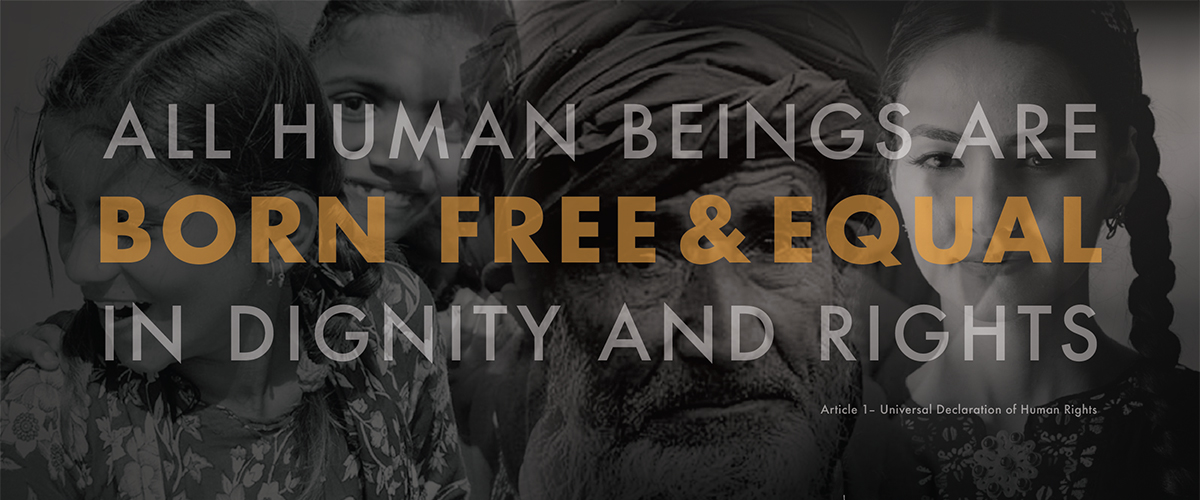The 70th anniversary of the UN Declaration of Human Rights is celebrated today, 10 December as the intergovernmental conference on the Global Compact for Safe, Orderly and Regular Migration (GCM) begins in Marrakech. The GCM is the first-ever inter-governmentally negotiated agreement to cover all dimensions of international migration in a holistic and comprehensive manner.
On Human Rights Day 2018 we are standing up for the rights of climate displaced people. Climate displacement is a growing issue faced by millions of people and its impacts can be felt at the international, regional, national and sub-national level. Despite this, climate displacement has, to date, been dealt with in an ad hoc manner in international and domestic fora. The GCM attempts to address this gap with strong language recognising climate change as a driver of migration. In particular the sub-section in Objective 2 ‘Natural disasters, the adverse effects of climate change, and environmental degradation’ includes significant commitments in this area. It also includes paragraph (h) which links human rights, climate change, displacement and data gathering.
The GCM contains a strong human rights based approach, including a guiding principle that ‘the Global Compact is based on international human rights law and upholds the principles of non-regression and non-discrimination’. This is further backed by a commitment to incorporate a whole-of-society approach including ‘migrants, diaspora’s, local communities, civil society, academia, the private sector, parliamentarians, trade unions, National Human Rights Institutions, the media and other relevant stakeholders in migration governance.’ This commitment will be a key pillar of the response to climate displacement, which is best approached through engagement with, and participation by, impacted populations.
The impacts of climate change already effect the enjoyment of peoples’ human rights and these can be further undermined if climate action is not informed by human rights norms. Left unchecked, climate change has also the potential to wipe out the development gains of recent decades. It is therefore imperative for any climate action to protect and respect human rights. This can be achieved with a climate justice approach, which is the basis of the Foundation’s work on human rights and climate change, in line with the Principles of Climate Justice ‘Protect and Respect Human Rights’ and ‘Support the Right to Development‘.
The most fundamental action that countries can take to protect the rights of people at risk of climate displacement is to limit the impact of climate change as much as possible and thereby reduce the threat to populations in high risk areas. This is the responsibility of all countries, and was affirmed in the Paris Agreement’s commitment to keeping temperatures at well below 2°C above pre-industrial levels and pursuing efforts to limit the temperature increase 1.5°C above pre-industrial levels.
We still have a long way to go before respect for human rights is truly universal. The words of the Declaration are not yet matched by facts on the ground. In practice, people all over the world still endure constraints on ‑ or even total denial of ‑ their human rights. Article 1 of the Universal Declaration says it so superbly: “All human beings are born free and equal in dignity and rights.” The social, political, economic and cultural rights enshrined in this foundational document belong to everyone, everywhere ‑ independent of race, colour, gender, language, faith or opinion.
The Universal Declaration of Human Rights ‘recognition of the inherent dignity and of the equal and inalienable rights of all members of the human family is the foundation of freedom, justice and peace in the world’. In terms of climate change, the full weight of history is on our shoulders and the gaze of the future is on our actions.
Related Links
United Nations Declaration of Human Rights
Intergovernmental Conference on the Global Compact for Safe, Orderly and Regular Migration


